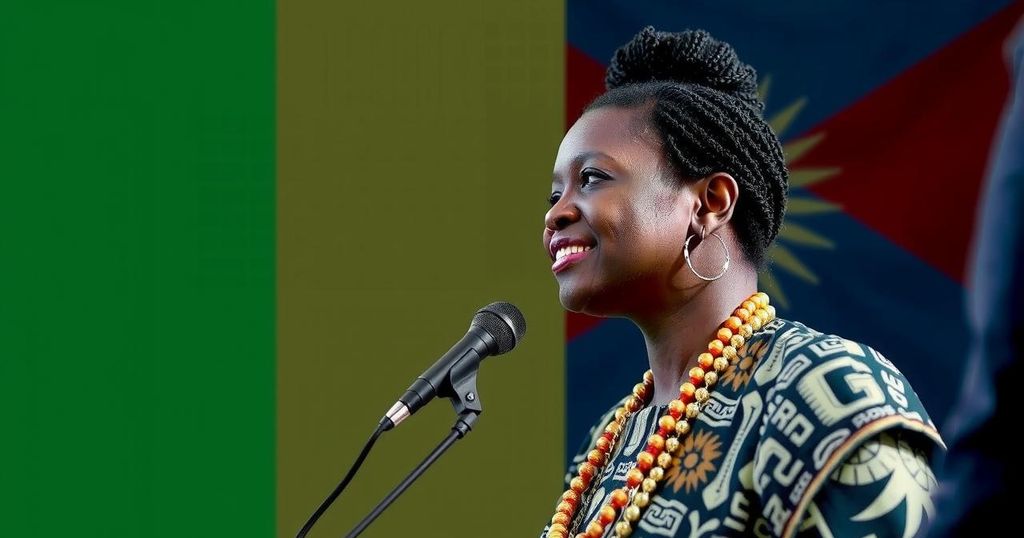Namibia Votes for Historic Presidential Election with First Female Contender

Namibia is set to vote in a presidential election featuring Netumbo Nandi-Ndaitwah, a leading candidate aiming to become the country’s first female president. Nandi-Ndaitwah promises economic reforms and job creation amidst rising discontent with SWAPO’s governance. Voter turnout and sentiments regarding unemployment and women’s rights are crucial in this pivotal election, reflecting potential shifts in the region’s political dynamics.
Namibia is poised to make history as it votes in a presidential election, with strong prospects for a female president for the first time. Netumbo Nandi-Ndaitwah, the current vice president and candidate from the ruling SWAPO party, has emerged as a leading contender. Her candidacy follows the passing of President Hage Geingob earlier this year. Despite SWAPO’s longstanding governance since independence in 1990, recent discontent over unemployment and economic struggles may influence voters’ decisions.
Nandi-Ndaitwah, aged 72, is notable for her involvement in the Namibian independence movement during the 1970s. Her commitment to economic revitalization includes a promise to address a 20% unemployment rate among youth and to create over 500,000 jobs through significant investment over the next five years. Nonetheless, such ambitions have drawn skepticism from critics who deem them ambitious. The election follows a troubling trend in the region, where established political parties have faced public backlash and lost ground in recent elections.
Registered voters in Namibia number approximately 1.4 million out of a population of 3 million, with significant demographics including the young population who are currently facing economic hardships. The election is particularly pivotal, as it will also determine the composition of Parliament. Besides Nandi-Ndaitwah, thirteen other candidates are competing for the presidency.
SWAPO’s historical dominance is under scrutiny, particularly since its last electoral performance in 2019 yielded the lowest vote share in its history. As Namibians consider their options, issues such as gender equality, reproductive rights, and equal pay are anticipated to be pivotal in influencing voter behavior.
Namibia, situated on the southwestern coast of Africa, gained independence from apartheid South Africa in 1990. Since then, the SWAPO party has played a central role in the nation’s governance, continuously holding the presidency for 34 years. However, recent elections in neighboring countries have highlighted rising dissatisfaction with long-standing political powers, raising questions about voter sentiment in Namibia. Economic challenges, particularly high unemployment rates among youth, further complicate the political landscape as the nation prepares for its presidential election.
The upcoming presidential election in Namibia marks a significant opportunity for change within the political landscape as Netumbo Nandi-Ndaitwah emerges as a leading candidate. With her experience in governance and a focus on economic revitalization, her election could signal a shift towards addressing pressing issues affecting the Namibian populace. Voter sentiment, particularly among the youth and regarding gender equality, will undoubtedly play a pivotal role in determining the election’s outcome. As the country navigates contemporary challenges, the results could reflect broader trends within the region.
Original Source: abcnews.go.com







